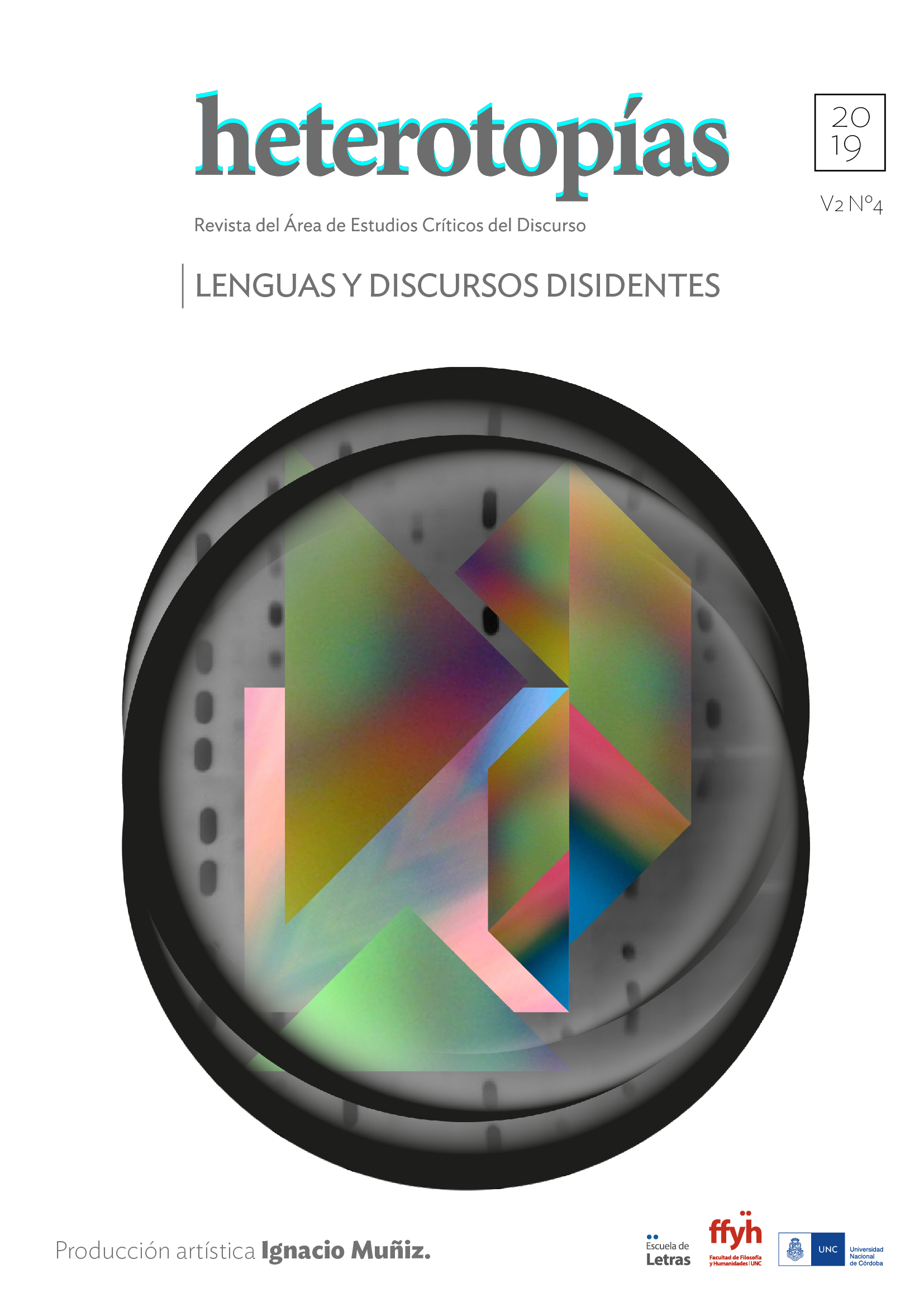A fable on the way: almost a novel by Juan l. Ortiz
Main Article Content
Abstract
This work tries to make a closed, immanent reading of an extensive poem by Juan L. Ortiz, from his last years. The analysis focuses on two areas of problems: on the one hand, the question of the narrative, the narrative included in the poem and its relationship to the traditional theme of travel or, more broadly, the verbal representation of displacement; on the other hand, the problem of the lyrical form, of that can characterize it in the plane of elocution and in the disposition of that can still be considered as its rhythmic unity, that is, the verse. To do this, we establish relationships with the old Aristotelian differences and their problems of translation between fable, action and composition, that if we took them literally, from the survivals of the Greek language in the present, they could be stated as follows: myth, praxis and synthesis. Without forgetting that also “fable”, which translates thus into Latin the most general “myth”, is sometimes said in Greek logos, that for Aristotle it is sometimes the theme or argument of the work, and other times the language with which it is performed, which includes metrics, rhythm.
In the modernity of the poem studied we will see therefore the contemporary drifts of the genre that in part assumes and in part tensions, since not only figuratively a fable, not only narrates and reflects, but also and above all subordinates syntax and communicative convention to the twists of a primacy of verbal matter (sound, graphic, paratactic).
Downloads
Article Details
Those authors who have publications with this journal, accept the following terms: Those authors who have publications with this journal, accept the following terms:
a. The authors will keep their copyright and guarantee to the journal the right of first publication of their work, which will be simultaneously subject to the Creative Commons Attribution - Non-Commercial - Share Alike (by-nc-sa) Attribution License; no commercial use of the original work or any derivative works is allowed, the distribution of which must be done with a license equal to the one that regulates the original work.
b. Authors may adopt other non-exclusive license agreements for the distribution of the published version of the work (e.g., deposit it in an institutional telematic archive or publish it in a monographic volume) provided that the initial publication in this journal is indicated.
c. Authors are allowed and recommended to disseminate their work through the Internet (e.g. in institutional telematic archives or on their website) before and during the submission process, which may lead to interesting exchanges and increase the number of citations of the published work. (See The effect of open access).
How to Cite
References
Aguirre, O. (2016). Una poesía del futuro. Conversaciones con Juan L. Ortiz. Buenos Aires: Mansalva.
Aristóteles. (1974). Poética. Madrid: Gredos.
Baudelaire, Ch. (1975). Oeuvres complètes I. París: Gallimard. Bibliothèque de la Pléiade.
Ortiz, J. L. (1996). Obra completa. Edición de Sergio Delgado. Santa Fe: Universidad Nacional del Litoral.
Ortiz, J. L. (2013). El junco y la corriente. Edición de Francisco Bitar. Paraná/Santa Fe: Universidad Nacional de Entre Ríos/Universidad Nacional del Litoral.
Platón (1922). Diálogos II. México: Universidad Nacional de México/Secretaría de Educación Pública.
